Help Us Build a Forever Home for Wildlife!
Pacific Wildlife Care is thrilled to announce our plans for a new, permanent home in San Luis Obispo. Located on a beautiful 10-acre property, the Kim and Derrel Ridenour Wildlife Rehabilitation Center will enable us to better serve our community’s wildlife. Our comprehensive goal of $11.5 million will secure funding needed for the construction of this transformational project and create a sustainable future for PWC. Thanks to the generosity of our supporters, we’ve raised $5.7 million towards the $7 million needed for initial planning and construction needs. Additionally we have raised $3.8 million in legacy gifts to help create a sustainable future for PWC.
With construction starting in early 2025, your support is vital. Donate today to help us create a brighter future for wildlife in San Luis Obispo County.
Behind the Scenes at PWC
Pacific Wildlife Care (PWC) has been an advocate for wildlife in San Luis Obispo County since 1984.
From that time we have grown from a small group of dedicated home rehabilitators into a successful non-profit organization with a well-equipped rehabilitation center, a full-time wildlife veterinarian, a small paid staff, and nearly 200 volunteers. In addition to the Rehabilitation Center, which is open every day of the year, we maintain a Wildlife Hotline that the public can call to report distressed wildlife (injured, sick, orphaned) and to receive information about our local wildlife.
The Latest from PWC
Pacific Wildlife Care News

What Happened with Those Baby Bats?
A small cadre of PWC staff and volunteers gained a new level of appreciation for bats this summer, when they […]

Red-tailed Hawk 24-1516: The Final Chapter
The multi-episode saga of RTHA 24-1516 had all the dangers and plot twists of a summer blockbuster. The nestling hawk […]
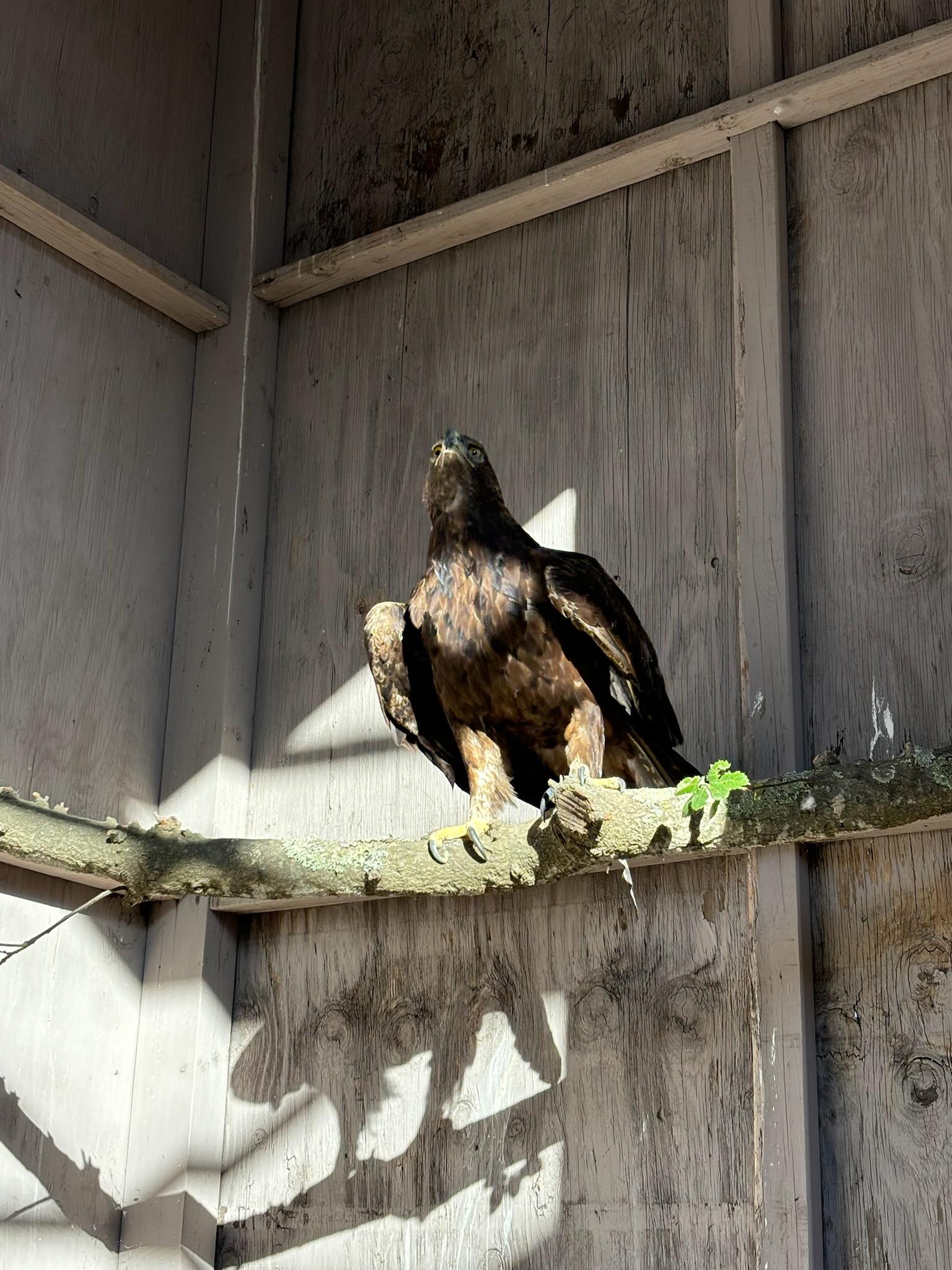
Golden Eagle 24-1834: The Mystery and Challenges of a Very Large Bird
The story of Golden Eagle 24-1834 was a medical mystery full of clues, detective work, challenges, and one red herring. […]
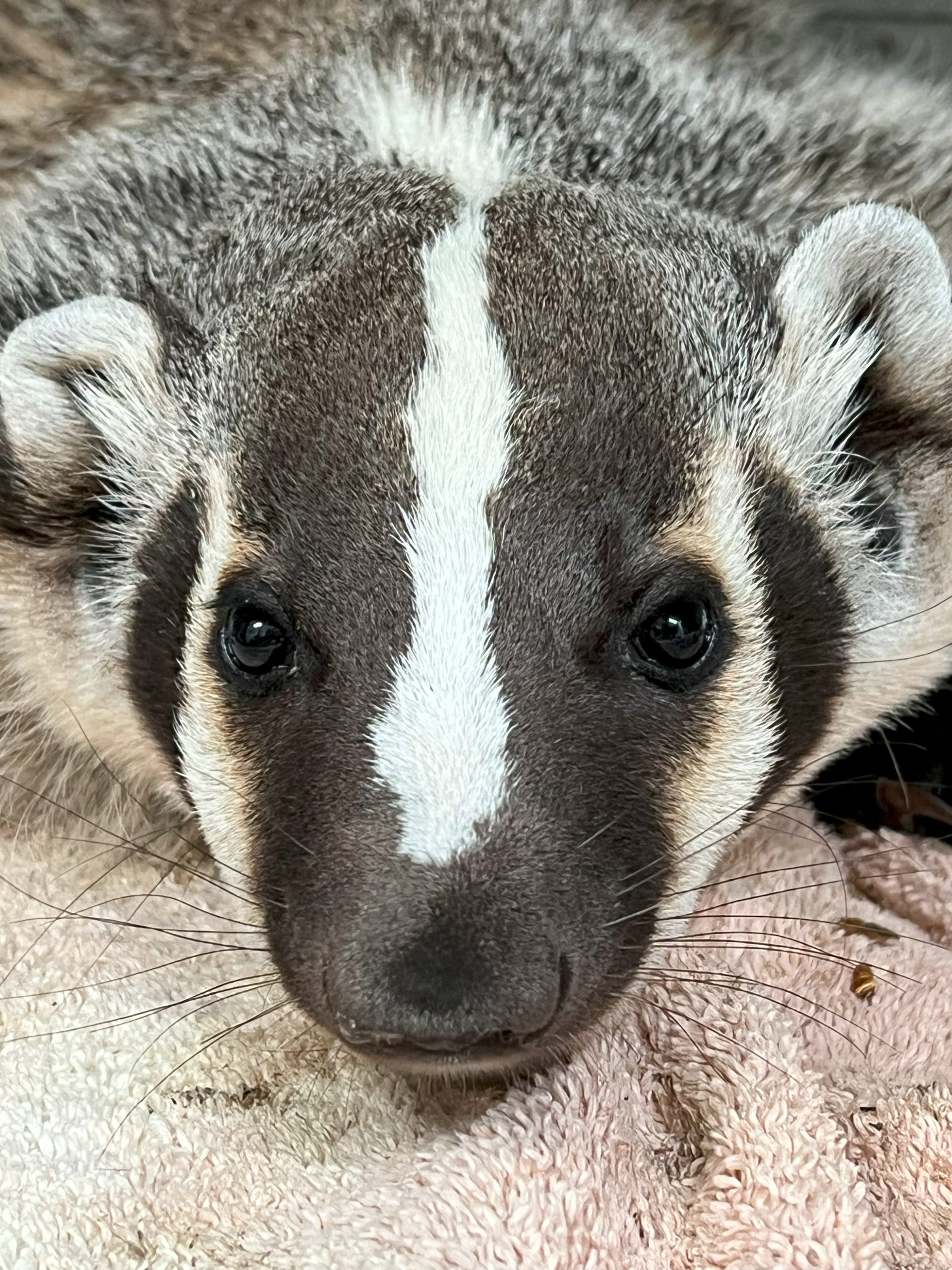
A Very Good Badger
“Charming” is not a word used in wildlife rehabilitation, but everyone was secretly charmed by American Badger 24-936. More precisely, […]
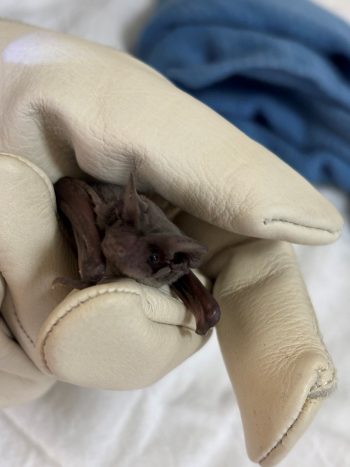
The Summer of Baby Bats
In the sweltering July heat, baby Mexican Free-tailed Bats dropped to the ground like unripe fruit. These tiny mammals need […]
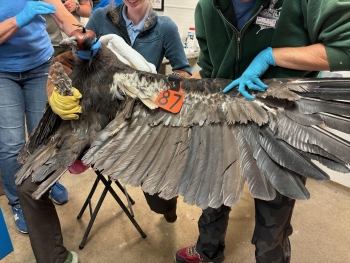
A First for PWC!
On Friday, July 26th a California Department of Fish and Wildlife Services biologist brought an endangered California Condor into PWC’s […]
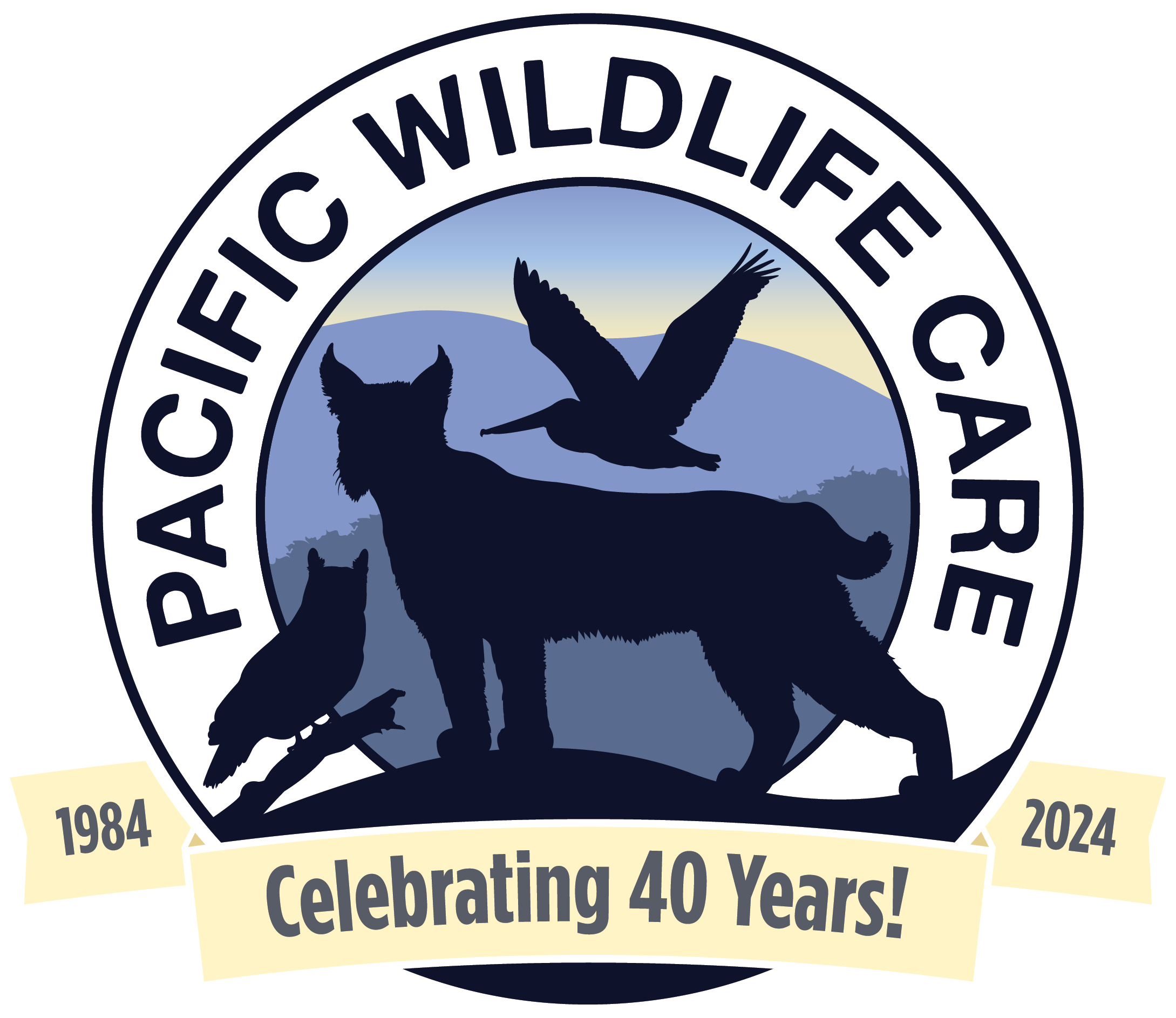






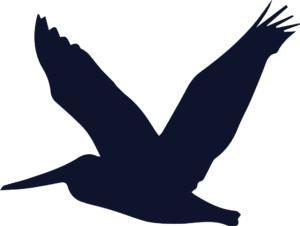
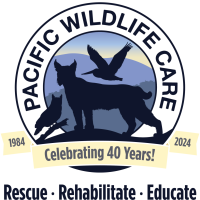
Facebook Posts
‼️ Did you know that nearly every bird in the U.S. is protected by one of our oldest federal wildlife protection laws? Passed in 1918, the Migratory Bird Treaty Act (MBTA) protects more than 1,000 native bird species. While the name highlights “migratory” birds, this law protects many non-migratory species, too. Birds not covered by the law are non-native species, like House Sparrows and European Starlings.
The MBTA makes it illegal to hunt, capture, kill, possess, or sell birds, as well as their feathers, eggs, and nests. For example, it is prohibited under federal law to…
🚫 Shoot birds of almost any species, including crows, gulls, and vultures
🚫 Destroy nests or eggs of almost any species, including swallows
🚫 Keep baby or injured birds of almost any species, including House Finches
This legislation is essential for protecting birds and the ecosystems they support, ensuring their survival for future generations.
🚨 If you see illegal wildlife-related activity, call CALTIPS hotline (888) 334-2258
If you find injured or orphaned birds, it is OK to transport them to a rehabilitation center. If you’re In SLO County, call us! If you’re outside of SLO County, find your closest rehab center at ahnow.org. Even with good intentions, attempting to keep or rehabilitate birds on your own is against federal law.
#BirdConservation #MBTA #WildlifeProtection #ProtectBirds #MigratoryBirds #WildlifeLaws #KeepWildlifeWild ... See MoreSee Less
🎉 Happy National Bird Day! 🎉
Today, we celebrate the wonder and importance of birds. Birds are pollinators, seed-dispersers, pest-controllers, prey, predators, and scavengers—all vital roles in maintaining a balanced, healthy ecosystem.
We are lucky to have an incredible diversity of birds around us—more than 460 bird species have been recorded in San Luis Obispo County!
💡 Want to help birds near you? Here’s how:
✨ Keep your environment clean & skip pesticides and rodenticides
🌱 Plant native species to create bird-friendly habitats
🪟 Make windows visible to prevent collisions
🐈 Keep cats inside or in an enclosed catio
🐦 Clean bird feeders & baths (toss wet seed!)
🗣️ Advocate for bird-friendly practices in your community
📚 Learn about local birds—try the Merlin bird ID app or connect with your local Audubon chapter
Let’s protect the birds that brighten our skies and our lives 🩵
#NationalBirdDay #BirdConservation #ProtectWildlife ... See MoreSee Less
🗓️ Mark your calendars for Saturday, January 18! Join us for a FREE event with our raptor education ambassadors! Choose from two showings:
✨ 1:30–2:30 PM
✨ 3:00–4:00 PM
📍 Veterans Memorial Building, Morro Bay (209 Surf Street)
Don’t miss this chance to get up close with these incredible birds. No registration required. For more info about the Morro Bay Bird Festival visit morrobaybirdfestival.org
We can’t wait to see you there!
#MorroBayBirdFestival #MeettheRaptors #PacificWildlifeCare #EducationAmbassadors #SLOCountyEvents #WildlifeEducation ... See MoreSee Less
If you use bird feeders, make keeping them clean part of your New Year’s resolutions! ✨
Bird feeders can bring excitement to your yard, but they can also become hotspots for spreading diseases. Help keep wild birds healthy by following these tips:
➡️ Clean feeders every 1–2 weeks: discard leftover seed, scrub thoroughly, and sanitize
➡️ Always discard wet seed to prevent mold and bacteria growth
➡️ For hummingbird feeders, skip the red dye and change sugar water every 3–5 days (more often in hot weather)
⚠️ If regular cleaning isn’t possible, it’s best to avoid using feeders to help protect the health of birds. Don’t forget to clean and sanitize bird baths regularly, too!
🌱 Looking for more ways to help? Plant native plants—even in pots—to provide natural food for birds and other pollinators.
Small actions like cleaning your feeders make a big difference for wild birds 🩵
#WildlifeTips #CleanFeeders #ProtectBirds #NativePlants #NewYearsResolutions ... See MoreSee Less